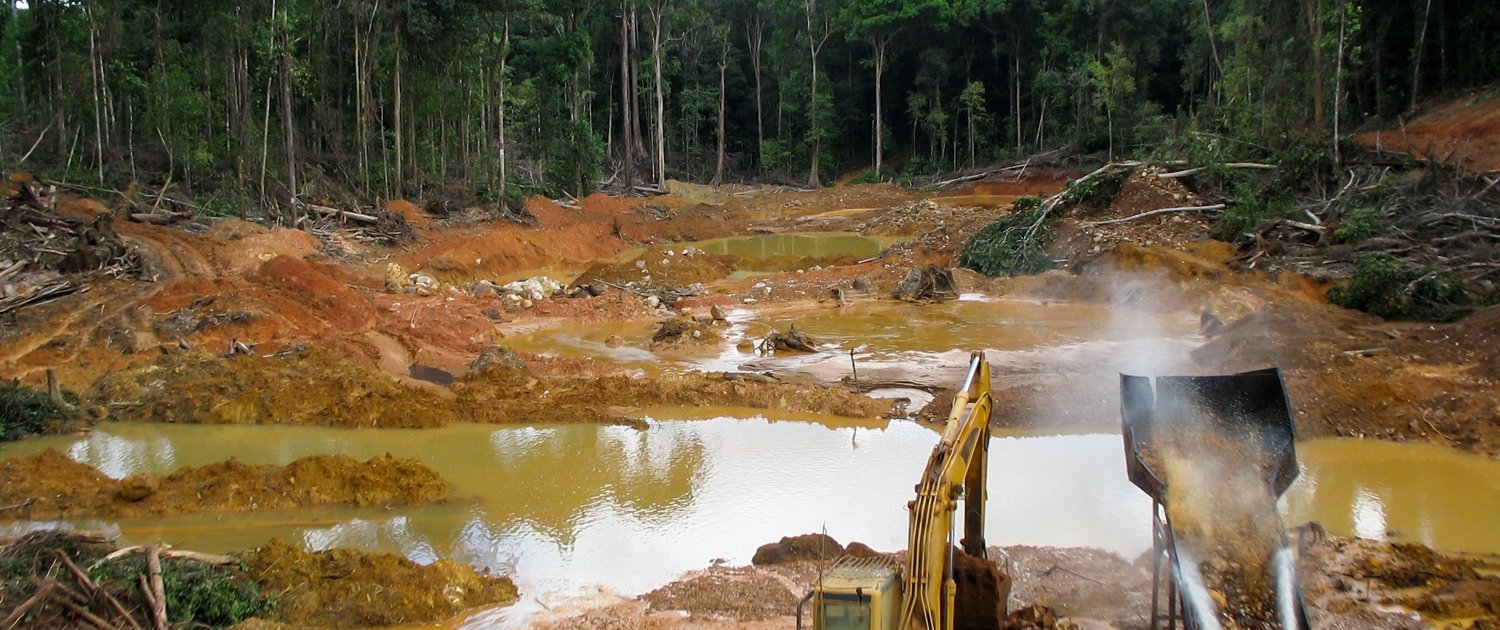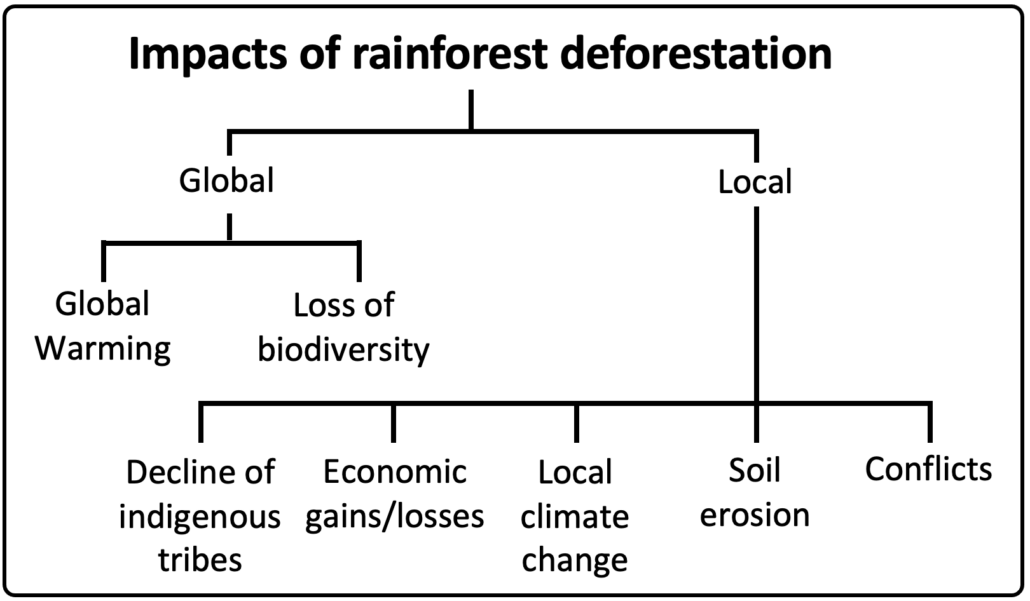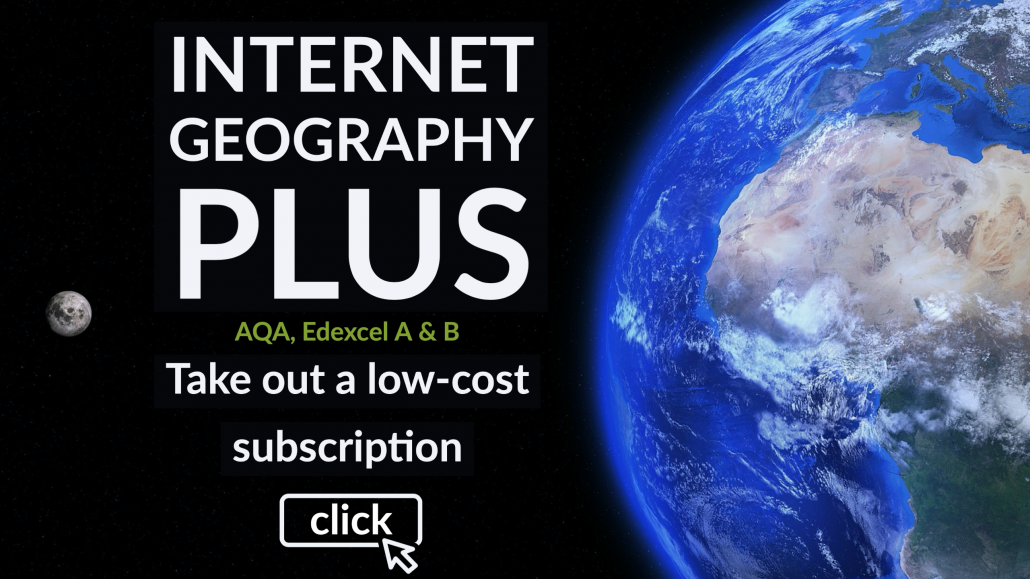What are the effects of deforestation in the Amazon?
The argument for deforestation in Brazil has often been framed around economic progress. By clearing forests, job opportunities are created in sectors such as logging, agriculture, and mining, tapping into Brazil’s rich natural resources. These activities are crucial for domestic economic growth and significantly contribute to Brazil’s export earnings. However, this approach has been criticised for focusing on short-term economic gains at the expense of long-term environmental sustainability. The removal of forests results in irreversible loss of biodiversity and soil fertility, which are crucial for Brazil’s sustained economic future.
The image below shows the local and global impacts of deforestation in the Amazon rainforest.
What are the global impacts of deforestation in the Amazon?
Climate Change
The Amazon rainforest plays a vital role in regulating the Earth’s climate by absorbing carbon dioxide. Deforestation halts this process, leaving more carbon dioxide in the atmosphere. Additionally, using fire to clear land releases significant amounts of carbon, exacerbating the greenhouse effect and increasing CO2 in the atmosphere. Carbon dioxide allows heat through the atmosphere (sun’s rays). However, it will not enable reflected energy to escape from the atmosphere. This is called the enhanced greenhouse effect and contributes to climate change.
Loss of Biodiversity
The destruction of tropical rainforests directly diminishes the world’s biodiversity, endangering many species. With an estimated 137 plant, animal, and insect species lost daily due to deforestation, some 5,000 each year, the potential for discovering new medicinal treatments in these ecosystems is also significantly reduced. Predictions suggest a 30 and 45-per cent reduction in species diversity in parts of the Amazon by 2030.
What are the local impacts of deforestation in the Amazon?
Water cycle
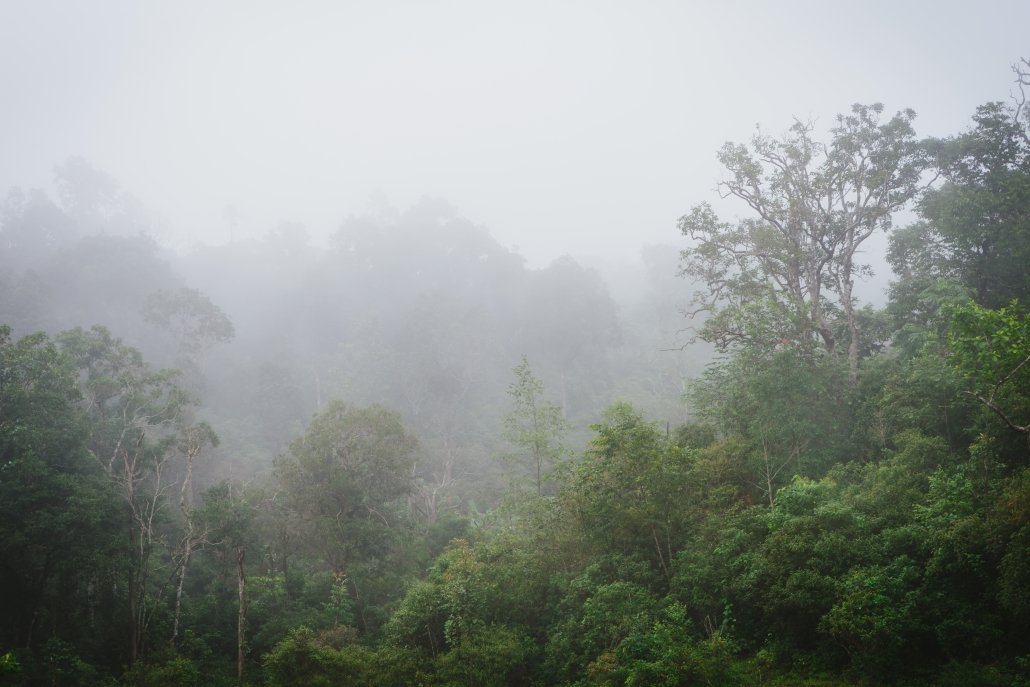
Evapotranspiration in the rainforest
Deforestation in the rainforest disrupts several natural cycles. The first is the water cycle. Once trees are felled, evapotranspiration reduces, as does the return of moisture to the atmosphere. This leads to less convection rainfall and drier conditions, and the climate becomes warmer, harming activities such as agriculture that the forest is cleared for.
Nutrient Cycle
The second natural cycle affected by deforestation is the nutrient cycle. About 80% of the rainforest’s nutrients come from trees and plants. That leaves 20% of the nutrients in the soil. The nutrients from falling leaves are instantly recycled into the plants and trees. When an area of rainforest is clear-cut, conditions change very quickly. The soil dries up in the sun. When it rains, it washes the soil away. The rainforest never fully recovers. When land is cleared for grazing and plantations, it quickly becomes infertile, leading to further forest clearance.
Soil Erosion
When vegetation is removed, the soil is left exposed to the heavy equatorial rainfall and is rapidly eroded. The removal of topsoil means little vegetation will grow. Also, soil erosion leads to flooding as the soil becomes deposited on river beds.
The image below shows the brown water of the Amazon, coloured by suspended sediment from soil erosion.
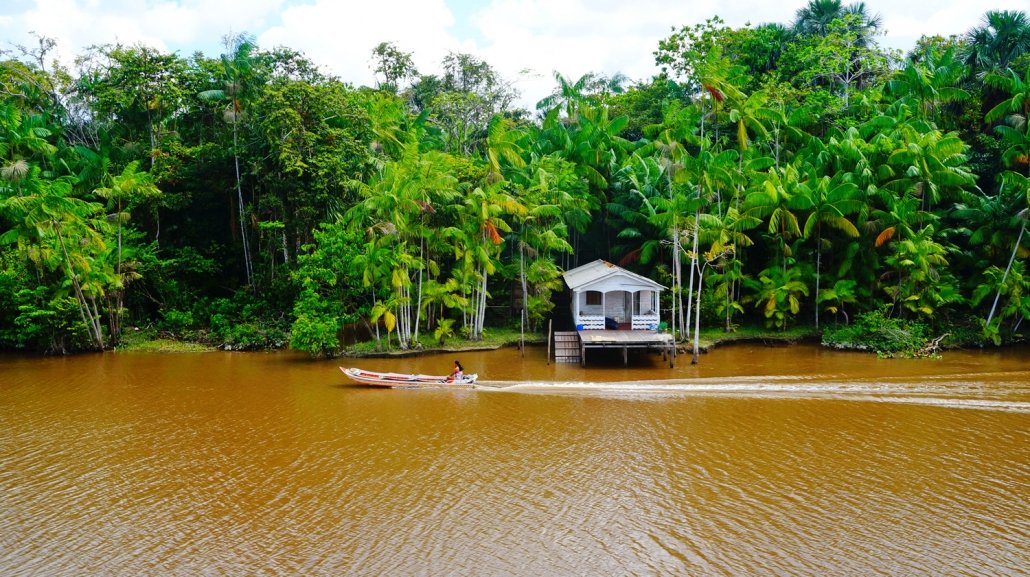
Sediment from soil erosion has muddied the River Amazon.
Water pollution
Activities such as gold mining lead to river pollution. Mercury used to separate the gold from the ground and enter rivers, poisoning fish and people living in nearby towns.
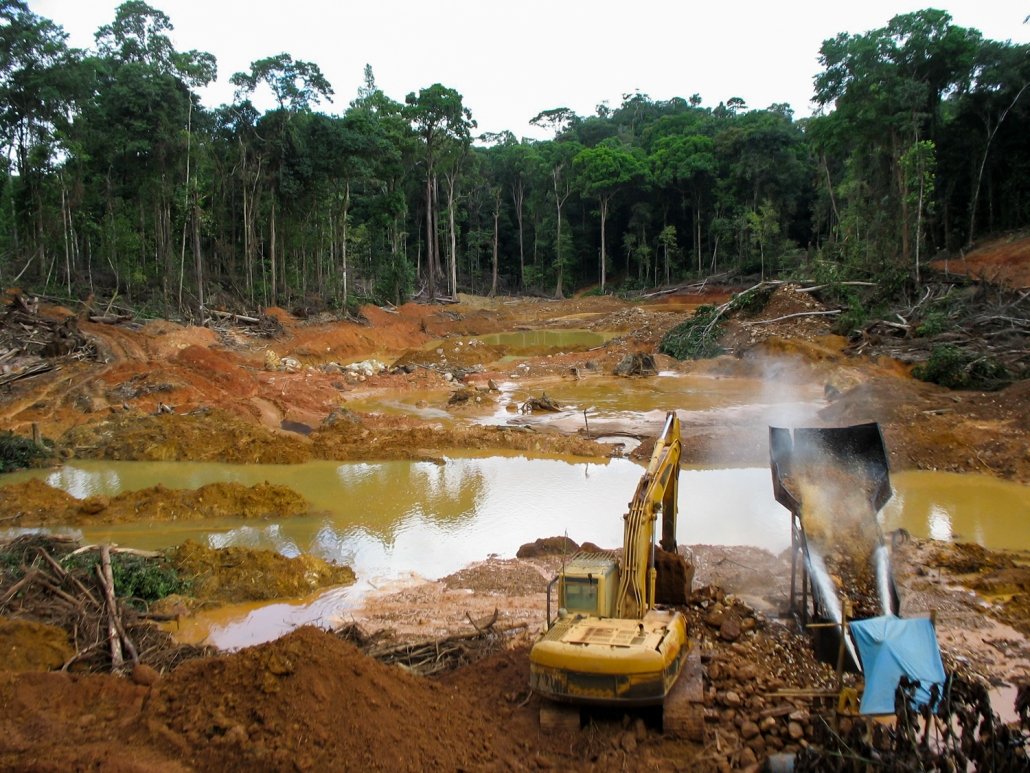
Gold mining in the Amazon Rainforest
Indigenous people
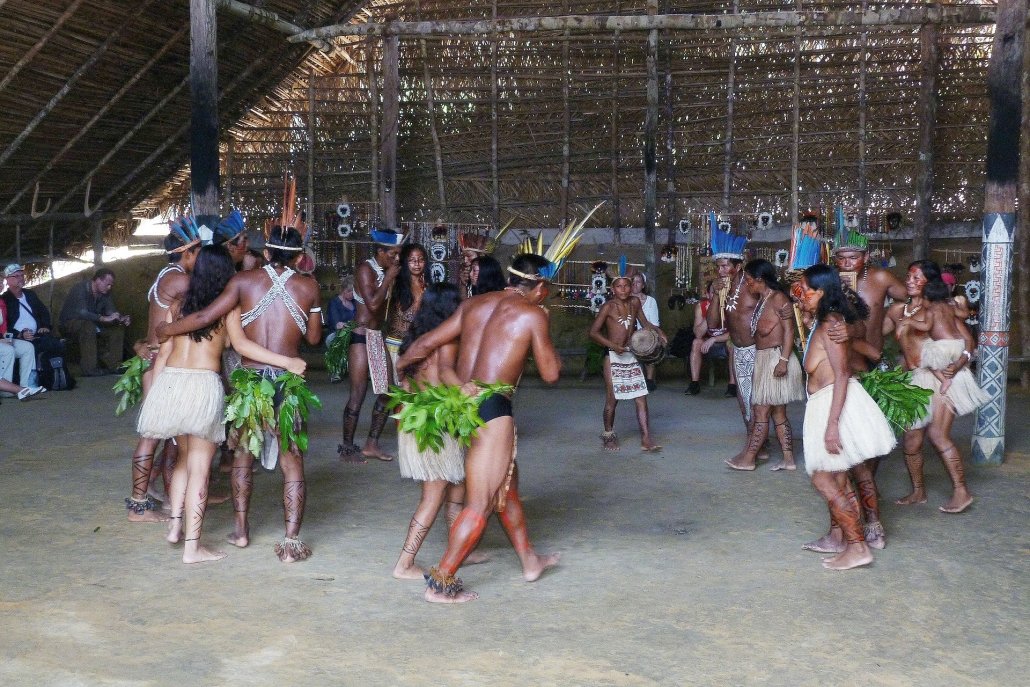
An indigenous tribe in the Amazon rainforest
Not all Brazilians benefit from rainforest exploitation. Indigenous tribes have lived in harmony with the Amazon rainforest for thousands of years. There are now only around 240 tribes left, compared with 330 in 1900. Many people have been forced from the forest due to:
- road construction
- logging
- the creation of reservoirs, plantations and ranches
- the opening of mines
- settlement growth
Estimates suggest that 80% of indigenous people in the Amazon have died since the arrival of Europeans in the sixteenth century. Most have been killed by Western diseases such as malaria, to which they have no immunity. The construction of roads, ranches, mines and reservoirs has forced many of those remaining away. Despite the reduction in indigenous tribes, about 1 million indigenous people in Brazil continue to rely on subsistence farming and the sustainable harvesting of forest products.
Conflicts
While deforestation has undeniably contributed to economic development, it has also sparked conflicts over land rights and conservation. The debate over rainforest use—between conservationists seeking to protect these ecosystems and developers eyeing economic opportunities—highlights the complex challenges of balancing economic growth with environmental preservation.
Conflicts occur between loggers, other developers, and indigenous people. They have conflicting opinions on how the rainforest should be used.
Related Topics
Use the images below to explore related GeoTopics.

